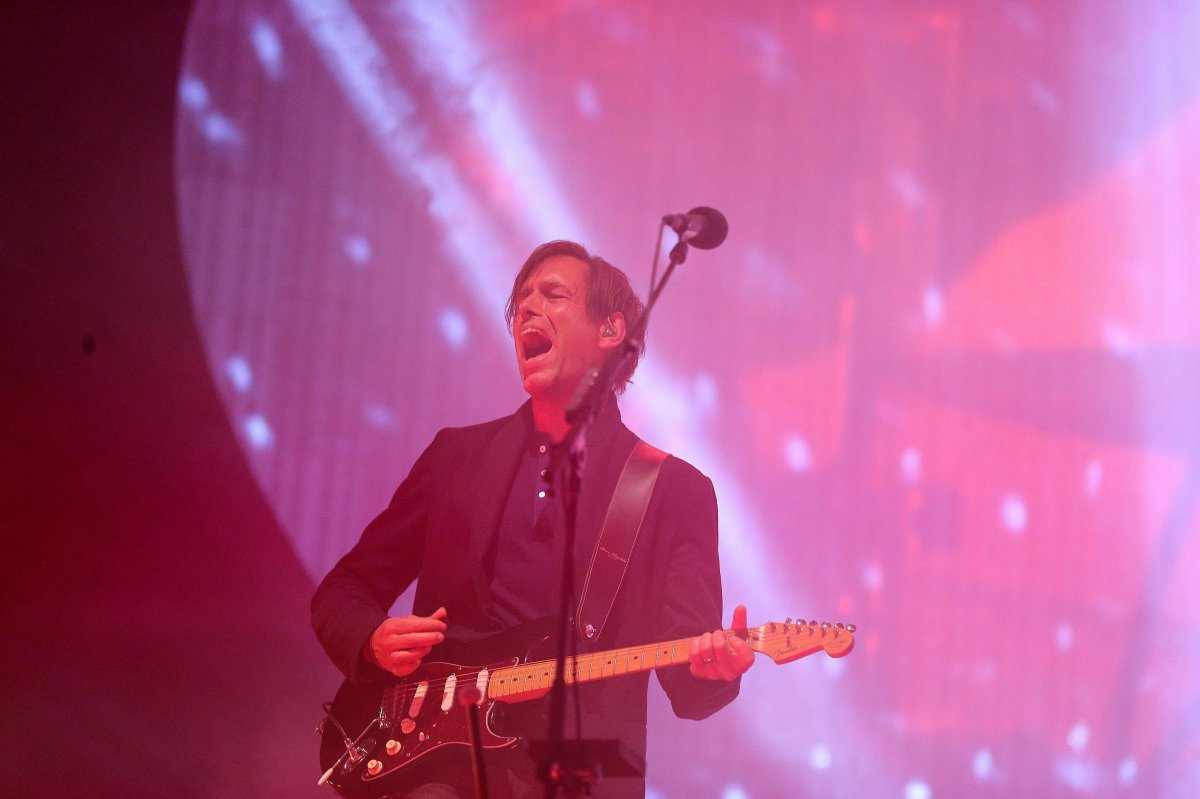Ed O’Brien seems a bit anxious on the phone from London. Content to do his part in everything Radiohead has done as a group — a successful venture, given that the band has sold 30 million albums — he filled downtime between albums and tours by composing soundtracks for the BBC, touring with Crowded House frontman Neil Finn, working on a musicians’ rights non-profit organization, and running a restaurant in the English countryside.

Oh, and he was also part of a nature group’s efforts to get birdsong — actually wild birds singing — onto the British charts as a way to draw attention to the disappearance of this type of wildlife in the U.K.
But in 2017 while taking a break to live in Brazil with his family for seven months, he started to think about recording an entire album on his own. Very slowly, songs started coming together, beginning with this Carnival-inspired track Brasil, released late last year under the moniker EOB.
More music soon followed, all of which will appear together on O’Brien’s debut solo album, Earth, due April 17.
We already have the first official single, a stunningly good (and, it must be said, quite Radiohead-esque) song called Shangri-La.
When I complimented him on his newfound lead singing voice, he seemed a little surprised.
Alan Cross: You had to find a lead singer voice for this record, didn’t you?
Ed O’Brien: You’re absolutely right. It’s something I really doubted. In the early stages, I thought I’d find someone else who might sing. You do have to find your voice and that’s actually probably the hardest part of it. After years of having sung background vocals live, it’s not the same as in the studio. To make the transition to lead vocals was a very big step.
Why now for a solo album?
I’m not sure I understand fully why now. All I can tell you is that I felt utterly compelled to do this once these songs began to emerge. It kind of took me by surprise. Maybe my songwriting career started at a later age.
The production on this album is stunning. It’s so smooth.
You kind of buried the lede there a little bit, saying you had a woman producing some of the record. What, two per cent of producers are women?
What makes this album different from a Radiohead album?
Crikey. The similarities are there — the whole process of writing and rewriting and dark nights of the soul. That was a very familiar journey. But it was also completely different. In Radiohead, Thom’s the main songwriter, and I work on sounds. My record was very much me and having to come up with 95 per cent of the musical idea.
There are some Latin elements on this record.
That comes from the seven months I spent with my family in Brazil. I love Latin music. I love the groove, I love the feel, the beauty of it. That was definitely something I was drawing upon.
Well, there is that song called Brasil. And tell me if I’m wrong; it made me think of Primal Scream’s Movin’ On Up but in a minor key.
Movin’ On Up played a very important part. I had something of a eureka moment with that record while I was in Brazil and I put on Screamadelica. I got a spine tingle. And I thought, “This is the kind of music I want to make.” So if that’s what you’re feeling coming through … That song is essentially gospel music with a dance groove. And that’s what I was drawing upon for my record, that moving from the darkness to the light.
And then there’s a bossa nova feel on a song called Banksters.
Yes. It’s in 7/8. And when I play that song on an acoustic guitar it sounds like a bossa nova song. With the chorus, I was trying to create a White Stripes vs. Led Zeppelin meets Latin hybrid.
You’ll be on tour this summer. What can we expect to see onstage?
I would hope to create an environment where people will feel it’s a safe space. People can dance and sort of lose themselves in the music. An immersive gig. Hopefully, it’ll be an emotional journey.
There’s a Toronto stop at the Danforth Music Theatre on May 31 followed by a gig at the unfortunately named Corona Theatre on Montreal on June 2.
There will be a lot of bad jokes. Not from me, however.
Finally, the obligatory, “What’s the future of Radiohead?” question.
I’m not sure what the future is, but we’re like a family, so there is a future. I know a lot of bands have five-year plans, but we don’t. We don’t know what we’re doing two months ahead of time. We’ve never known that. Things have never been mapped out. Our career has been a reaction of what we’ve felt, what we’ve wanted to do. I wish I could give you a really solid answer, but I’ve got no idea!
Earth will be out digitally and in stores April 17.
—
Alan Cross is a broadcaster with Q107 and 102.1 the Edge and a commentator for Global News.
Subscribe to Alan’s Ongoing History of New Music Podcast now on Apple Podcast or Google Play






Comments